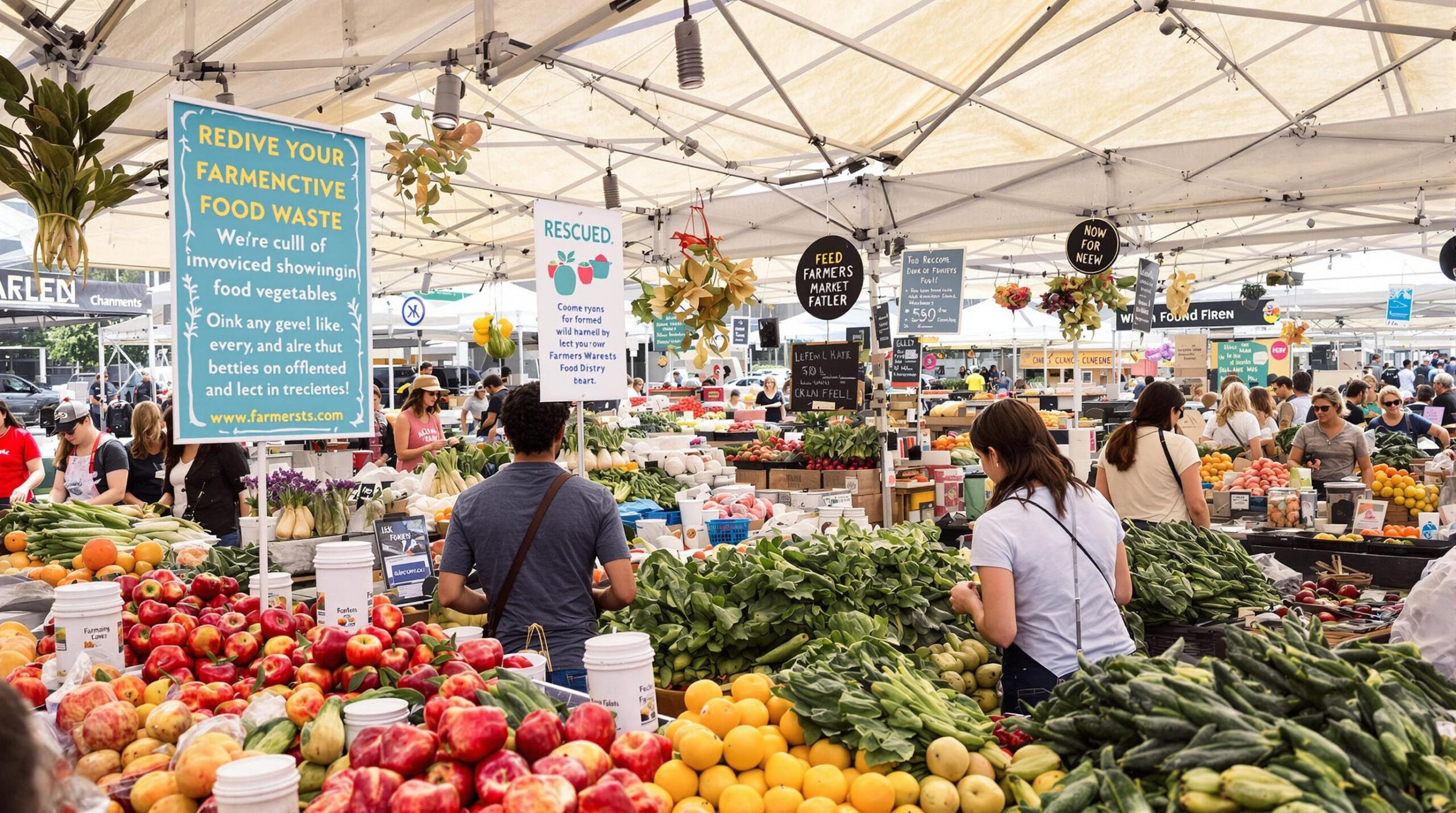Farmers’ markets play a crucial role in connecting communities with fresh, local food. However, food waste remains a persistent challenge at these markets. Innovative solutions are emerging that tackle waste and create new opportunities for vendors, shoppers, and local organizations.
Understanding the Scope of Food Waste at Markets
Food waste at farmers’ markets occurs for many reasons. Some produce is left over at the end of the day, unsold, and perishable. Sometimes fruits and vegetables develop blemishes or are imperfectly shaped, making them less appealing to customers. Vendors must balance bringing enough stock without overestimating demand, which can lead to surplus products.
A USDA study revealed that about one-third of all food produced in the United States gets wasted. At local markets, waste not only affects vendors’ profits but also undermines community efforts to promote sustainability. Addressing this issue has led to creative solutions that benefit both food producers and the environment.
Encouraging “Ugly Produce” Sales
Many farmers’ markets are now promoting the sale of “ugly produce.” These vegetables and fruits may look unusual, but they retain full flavor and nutrition. Special bins or discounted baskets allow shoppers to buy produce that might otherwise go unsold and wasted.
Through educational campaigns and posters, markets inform customers that aesthetics do not determine taste or freshness. Vendors report that highlighting the environmental benefits of buying imperfect produce encourages more people to make purchases. This trend helps change consumer perceptions and reduces considerable waste.
Donation Partnerships with Local Charities
Another effective solution is to partner with food banks and local charities. Vendors donate unsold but edible produce at the end of each market day. These donations support families who face food insecurity and reduce landfill contributions.
Some markets coordinate weekly pickups with local nonprofits who distribute the produce quickly, ensuring freshness. Organizers often find volunteers who help collect, sort, and deliver contributions. This practice not only reduces waste but also strengthens community ties and social responsibility.
Composting Initiatives for Added Value
Composting provides another sustainable option for handling unavoidable food waste. Some markets set up compost bins for both vendors and customers. Produce scraps, damaged goods, and even biodegradable packaging get collected for composting rather than sent to landfills.
Markets may team up with local farms or community gardens to turn this waste into nutrient-rich soil. The finished compost supports growing more healthy food, closing the loop in a sustainable cycle. Educational workshops often accompany these efforts to teach marketgoers about the benefits of composting.
Supporting Value-Added Processing
Surplus produce can find new life through value-added processing. Some vendors transform unsold fruits and vegetables into jams, sauces, pickles, or baked goods. Many markets provide spaces or permits for small-scale processing businesses to operate safely and legally.
These products extend the shelf life of perishable goods while diversifying vendors’ offerings. Customers enjoy unique, locally made foods, and vendors reduce their unsold inventory. This approach turns potential waste into a source of creativity and income for farmers and artisans.
Technology Tools Improve Inventory Management
Digital solutions offer powerful ways to fight food waste at farmers’ markets. Some markets use mobile apps or online platforms to track inventory in real-time. Vendors can update their available stock and better anticipate customer demand during market hours.
Online pre-ordering systems enable shoppers to reserve produce in advance, reducing the risk of overproduction. After-market flash sales via mobile alerts help vendors clear remaining products before closing. Data from these tools helps market managers and farmers plan more efficiently for future markets.
Educational Outreach and Community Engagement
Education remains central to lasting change. Farmers’ markets are increasingly hosting workshops, cooking demonstrations, and information booths about preventing food waste. Shoppers learn creative storage tips, recipes for using up leftover produce, and the importance of buying produce seasonally and locally.
Youth programs introduce children to sustainable habits, such as composting and healthy eating. Hands-on activities foster appreciation for local agriculture and the resources needed to grow food. Community engagement builds long-term support for innovative initiatives and promotes shared responsibility for reducing waste.
Collaboration with Municipal Programs
Farmers’ markets also collaborate with city and regional governments to expand food recovery networks. Some municipalities provide grants or technical support for food donation and composting efforts. Local waste management agencies may help set up drop-off points or subsidized compost collection services for markets.
Joint publicity campaigns with city officials raise awareness about food waste and promote market-driven solutions. This alignment between markets and policy-makers paves the way for broader adoption of best practices regionally and nationally.
Creating a Culture of Sustainability
Innovative approaches at local farmers’ markets are shifting how communities think about surplus and abundance. Vendors, shoppers, volunteers, and leaders all play crucial roles in these successful efforts. By working together, they transform waste challenges into stories of ingenuity and mutual benefit.
Adoption of these practices continues to spread as more markets seek effective waste solutions. The benefits extend beyond reducing food waste, including improved food access, new economic opportunities, and environmental stewardship. These achievements inspire other communities to take action.
Looking Ahead: Scaling Up and Sharing Success
Documenting and sharing the outcomes of these innovations encourages further adoption. Networks like the Farmers Market Coalition provide resources and training for markets nationwide. Through peer mentoring and case studies, markets inspire others to implement waste reduction strategies tailored to their local needs.
With sustained commitment and creative thinking, farmers’ markets can lead the way in combating local food waste. Innovative solutions invite everyone to help build a more sustainable, resilient, and food-secure future.

